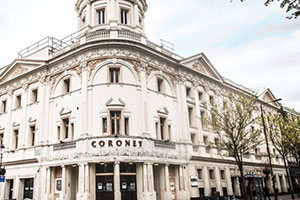
Dead Poets Live: Yes, We Are Going to Suffer – Poetry annd War from Homer to Today
About the Show
The founding poems of Western literature are war poems: the Psalms of David and Homer’s Iliad. The first concerns war’s impression on the human spirit; the second is a memorial to the glorious deeds and names of those who fought. War has inspired poetry and war poetry has inspired war. Homer and Virgil were still a call to arms in 1914, when verses written in the trenches were yet to put away their swords and chariots. Poetry has drawn poets to war, like Rupert Brooke, and war has drawn poetry from soldiers, like Wilfred Owen. And until five hundred years ago war and poetry were competing ‘sports’: Geoffrey Chaucer served in France; Sir Walter Raleigh fought with the Huguenots; George Gascoigne was captured at the siege of Leiden; John Donne followed the Earl of Essex into battle with the Spanish. Drawing on this rich tradition, from the fields of Troy to the Gulf, and in the company, as ever, of wonderful readers, this latest Dead Poets Live show marks this year’s Remembrance Day by considering the art of war and the art of poetry, and what changes in the one have meant for the other.

